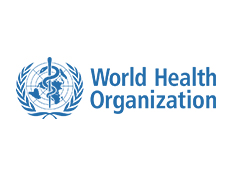Share
Print

The World Health Organization (WHO) is a specialized agency of the United Nations, consisting of 194 member states, whose main function lies in solving international health problems of the world's population. Founded in 1948 in Geneva, Switzerland, WHO collaborates with governments, NGOs, foundations, researchers, health professionals and other organizations.
WHO’s main missions are to provide international recommendations in the field of healthcare, set health standards and work with national governments to strengthen national health programs as well as develop and transfer appropriate technologies, information and health standards. WHO contributes to the improvement of national health services, the prevention and control of non-communicable and infectious diseases, the protection of the environment, maternal and child healthcare, the training of medical personnel, the development of biomedical research and the elaboration of sanitary statistics.
WHO also serves vulnerable communities and responds to health emergencies by supporting the provision of essential health services in fragile settings. The WHO team works to improve everyone’s ability to enjoy good health and well-being. The budget is financed by contributions paid by member countries, voluntary contributions from member countries or donations. Contributions are calculated on an escalator: rich countries pay more, and poor countries pay less.
WHO key sectors: Healthcare, Humanitarian Aid & Emergency, Social Welfare, Research, Education & Training, Capacity Building, Human Resources, Women & Children, Gender Equality, Science, Advocacy, Risk Mitigation, etc.
